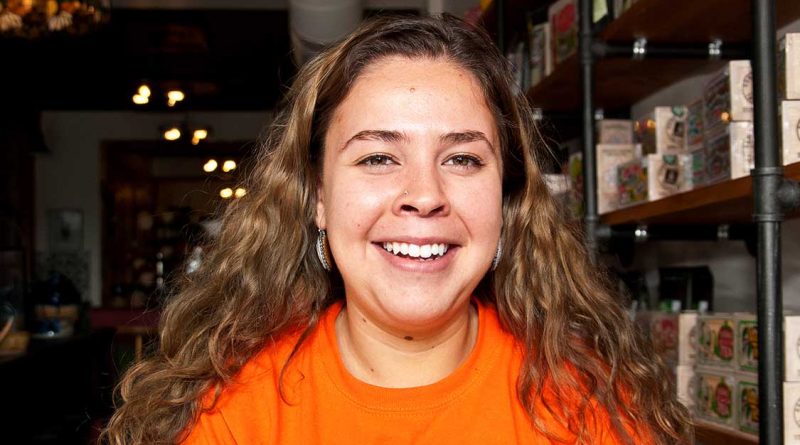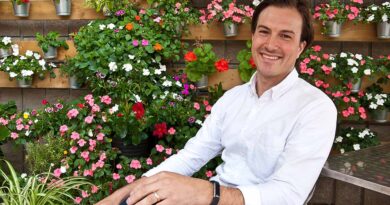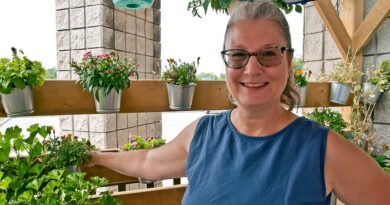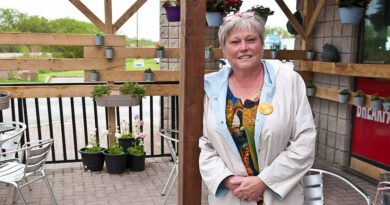The Road To the Federal Election
SUNonline coverage of the October 21, 2019 federal election continues with profiles of candidates running in Simcoe North. Interviews are presented as a series about a candidate’s life journey, background in the riding, political philosophies, and the platforms they and their parties have. Each candidate appears in the order they were interviewed.
Angelique Belcourt: On Fire.
It’s not being young is a big issue, or the only issue, but when the conversation turned to her perception of how the nature of work is changing, Simcoe North NDP candidate, Angelique Belcourt, lit up.
“We can’t find jobs in fields we study. We can’t find jobs in things we’re passionate about. We don’t want to be told you need to do a trade, or you’re never going to get a job on a liberal arts degree, or you’re never going to be a journalist, or there’s no space for you in the work place because the old guys are going to be here for another 20 years. We’re pissed off. We can’t find jobs. We’re going to school, we’re getting educated, we’re passionate about what we love and what we do and there’s no space for us,” said Belcourt.
This followed trying to understand and put into words a subject no one really understands unless you’ve kept abreast of developments. The way we work is changing, it’s changing fast, conversations with those in government and hoping to be in government reveal a complete lack of insight and Belcourt grasps to come up with an answer in a way she’s not thought about before.
“I don’t think people ever really plan on things changing. I think people have settled for the status quo. There’s a lot of youth activism right now. There are youth coming out and saying, “I want change. I want this. We need this. This is what we want differently. We’re not happy.” And I think that makes people very uncomfortable. Because youth aren’t behaving in a way that maybe our older population were when they were our age it’s causing a lot of status quo things to collapse; the automotive industry, trades, those kinds of thing. Youth are looking to engage in the world in a different way, a more holistic way and we’re asking bigger questions around existence, around how our society works, what we can change about what we are not happy about. That’s kind of like the fundamental shift we’re seeing right now. Maybe I’m based because I’m a youth. I’m sure there are bigger picture things that you see.”
Young people do see things differently. They’ve never lived a life without computers. They’ve never learned from their parents about the need to protect themselves from themselves on line. They’ve learning things in school as fact, older generations thought was something in Isaac Asimov’s head. They get the new economy somewhat, and they know the generations ahead of them don’t get it. They don’t believe they will ever have the kind of life, with a house, a retirement nest egg or a steady job like their parents and grandparents had.
“We rely on social services to be well and take care of us and we can’t access those services. They’re systemically underfunded. They’re hard to find in rural communities. Our parents never worried about student debt. They didn’t have to worry about that stuff. Some of our parents aren’t educated, they never needed that to be successful and they are successful. For us to see any success we feel we need an education. Or we have to start our own businesses and to start our own businesses, how are we being supported in that? We see a government that doesn’t support us in anything we that we want to do, only the blue collar guys, only the people who are already established in whatever industry.”

“We see this fundamental need for our society to be better and no one wants to listen to us about it, and no one cares to listen to us about it, but then they’ll complain about it just as easily. They don’t realize things are ten times as harder for us now. They just see they should have everything handed to them, but the reality is we are working ten times harder, we are getting ten times the amount of debt just to be successful, just so we can make it in their world.”
“I think that makes them uncomfortable and we want to make it our world so we can fit in to this world and be successful, and take care of everyone,” she said.
She got into the race just in time to run a campaign rather than be a seat filler at debates, playing catch up to other candidates who have been wrangling votes for many more weeks or months. The NDP riding association ran into a bit of a problem when the original candidate didn’t pass national party vetting, through no fault of the potential candidate.
Belcourt moved with her family from Toronto to Perkinsfield when she was a child. It was a return to home for the older members of the family who have generations of Belcourt in the area.
“My family was one of the first Metis settlement families in the Georgian Bay area in Penetangguishene,” said Belcourt, an only child. “But I’ve got about 43 cousins. I’ve never needed siblings. I have 20 aunts and uncles. The family is pretty big.”
She attended the French language Le Caron Secondary School in Midland and moved to St. Theresa’s Catholic High School for her last year.
“I was always a year ahead in my courses in French school, so when it came to Grade 12 my school didn’t have courses to offer me, so I had to go to Saint T,” she said. She started post-secondary education at the University of Guelph and took time to study in Europe.
“I fell in love with social work when I was in Malaga (Spain) so I moved to Laurentian University in Sudbury. I did the Indigenous social work program there. Our program lost accreditation and I was worried of not graduating, so I decided to turn back to the University of Guelph and finished my undergrad there in Sociology. Then I started my masters in community development and education at the Ontario Institute for Studies in Education (OISE). I’m in my second year, my last year hopefully, depending on how my thesis goes.”
Higher education wasn’t originally a plan, neither was majoring in sociology, a field many confuse with social work, but is a useful background for social workers and other professions.
“I’ve loved people. I’ve always been a people person. I’ve always grown up around people. I’ve been a helper since I was a kid. I just felt like, OK, I’ll do high school and see what happens, but going to St. Theresa’s really opened several doors for me. I took several courses in law, physics, the ology’s and I just realized there’s this whole other study of how people relate to one and other that I was really fascinated by. I couldn’t figure out why I had that fascination and then I started in sociology and a lot of things just stated making sense, like my Metis background, my obligation to take care of other people, take care of myself and building a greater sense of community.”
The Decision
As mentioned, the NDP had no candidate when the election was called. This came to Belcourt’s attention when she was looking online to find out who she was going to vote for, voting NDP was a given.
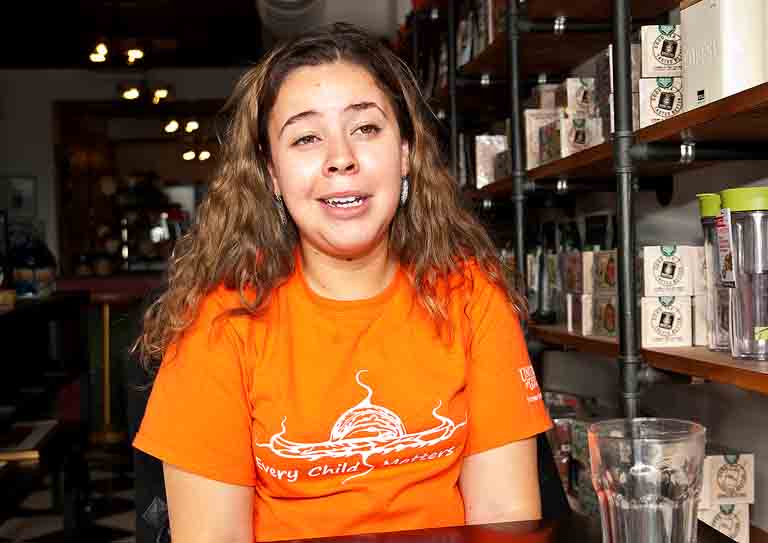
“I was just wondering what I do if there is no candidate to vote for,” Belcourt said. So she made a phone call to the NDP saying, “that’s not right. That doesn’t make any sense. There shouldn’t only be red and blue. There needs to be a change. There’s people who don’t vote only red and blue,” Belcourt said to the woman at the other end. Several more phone calls and days of waiting for a return call (all political bureaucracies are just short of being Vogon bureaucracies, especially at election time) got an invitation to stand as the candidate.
“I felt pretty excited. I was ready for the challenge. For me it’s always an opportunity. I’m already well connected in my community, at least up Midland way. For me it was, why wouldn’t I? What barrier could I possibly have to want to do this?” Belcourt said.
“I think one big thing I consider was I’m a youth and I’m doing this. There’s something special to say about being a young person, I’m just taking an opportunity. People, they say, “oh, you’re too young to join the rat race,”” she said. “At one point these guys weren’t old guys. They were young just like me. They ran. I don’t see it as a big deal. I think other people might see it as a barrier, but I really don’t.”
Being politically active on a national stage is a little different than being politically minded and Belcourt was that 6 weeks ago.
“I just got involved in a lot of community activism, grass roots project planning for supporting communities. I was really involved with the Indigenous centre at my university. I was on student council for many years. I worked at a registrar’s office at the student center at Laurentian. I’ve kind of always been involved,” Belcourt said. “In a sense I recognized people need to be held accountable for things and I had the power to make voices larger and greater.”
“Then I did Daughters of the Vote in April. That was a program of the not-for-profit called Equal Voice where young women up to the age of 23 apply to be MPs for the week for the riding they represent in Canada. We had 366 young women across Canada be in the House of Commons and represent their MPs for the week,” in a mock parliament. “It isn’t my first mock parliament I’ve been to. I’ve been to mock parliaments before through Laurentian.”
Why The NDP?
“Over the last few years I recognized how I wasn’t really happy with the government and looking for other parties who could make meaningful change for people and I came upon the New Democratic Party. There’s some really great people I look up to that are inspirations. I look at Romeo Saganash (MP. Abitibi/Baie-James/Nunavik/Eeyou), Charlie Angus (MP, Timmins/James Bay), a lot of strong Indigenous voices in politics are working with the NDP. I noticed a trend there. These are like my people that are making a change in their communities, what is this party all about? So I started educating myself a bit more about the NDP,” Belcourt said.
“I think the biggest fundamental shift in my view was I worked as social worker for the last year at a non-profit organization, the Women’s Addictions Treatment Centre (Jean Tweed Centre), and I work with specifically Indigenous women, and I learned how systemically we are failing all these women. They couldn’t access services without being discriminated with; they didn’t have the equal access to services; MPs that don’t listen to the realities of their constituents, these systems are built sometimes against people and we have the power to change that.”
It helps that she agrees with the party platform.
“I whole heartedly believe that we should be taking care of people. I think when we invest in people we invest in our economy, we invest in our wellbeing, we invest in a better society; the entire platform resonates within my heart.”
Back To The Future
Returning to the issue of work in a new economy, Belcourt has a lot of questions about what could be as she searched for a way to link the issue to what the party platform is.
“One of the things that I really appreciate on the NDP platform is we say we understand times are changing, people have to be trained on how to be able to adapt in these systems. There’s actually a lot our platform stating we are willing to help retrain people for like climate change, like some businesses are going to start going away because of climate change and people need to adapt to technology so they are not out of work. There’s a lot of investment in our platform.”
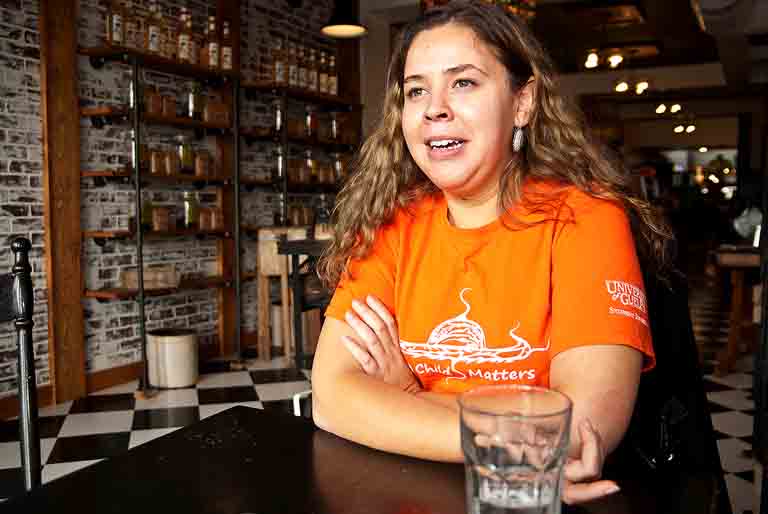
Of course, the overlooked aspect is there will be more people for fewer jobs, and those jobs will be very technical, something not every person has an affinity for. There will be very few transferable skill jobs for truck drivers, restaurant and bank workers and any other occupation displaced by automation.
“How do we support those people? Where do we pull out there passion? We’re capable. There are innate spirits in all of us. They just need to be fostered. Let’s support those people in seeing there are other options for them, seeing there are other job prospects, seeing there is maybe an educational training area they are passionate about.”
“We have to build on the things they want to be doing and not training on things they don’t want to be doing. If people want to start their own small businesses, let’s foster that. If people think there’s a lack of something in their community, let’s support that. If they want to go to school and learn a whole different trade, let’s support that, but we need to make sure we’re supporting people in making those transitions.”
It’s about money, corporations will have blacker bottom lines with fewer workers, more dividends to pay to investors, but governments will have few dollars to spend on the jobless. This is the central conundrum about universal basic income proposals. Of course, those at the top are dead set against raising taxes to pay for programs for former employees.
“There’s no harm in that (UBI). I think people should have everything they need to have the necessities to live. I’ve seen poverty and I’ve seen how people have to hustle, I’ve seen how they get destroyed over not having money. I’ve been social worker; I know the realities of those who struggle to have an income every day. Why not just give everyone the baseline they need to be able support themselves in this changing time. I believe everyone should have a universal basic income.”
“I don’t understand why people even consider putting a price on the greater good. I struggle with that. I understand people have money and that’s something that might be very important for them, but the reality is if you have money you’re not going to miss having money. There’s no way everyone is spending all of their money that they’ve ever had. I struggle with seeing why other parties and other candidates want to put up barriers for people to have the greater good being filled in our communities. Their businesses grow, their communities grow, so people can be fundamentally happy with where they’re at. In the larger scheme of things you’re really not taking anything out of their pockets, those are funds they probably don’t even realize they’ve seen.”
Climate Change

The discussion about climate change involves two things, maybe three things from Belcourt’s perspective. One is, obviously doing something to combat it. The second is part of the earlier discussion about jobs. Third, the glacial speed of government.
Most of the election rhetoric is about job losses in the oil sector with little recognition the energy production replacing oil is going to need workers. Already in Canada green energy employs more people than the oil patch does. That happened in 2014.
“People are comfortable, they love the status quo. You get settled in your job, you know you’re going to get your pension in 30 years. I think if people really care about work, they’re going to want to care about getting retrained in those kinds of industries that will enable them to still work,” said Belcourt.
“It’s going to be a place where everyone might have to learn to do things differently, but why wouldn’t you take the opportunity to do that in a world that’s growing. We’ve had the industrial revolution, we’ve had other kinds of revolutions, I don’t know if there’s ever really been a fear around that. Maybe it’s because things have happened too fast before, that they didn’t realize it was happening and now we are noticing this on tech shift.”
Action with the first point is dependent on the third in many people’s opinion.
“I think things have to change yesterday and I think that people who get elected in government sometimes forget they don’t only have an obligation to their community. They have a greater accountability to the way of life here in Canada. Again, I question, is it because people are comfortable in their positions, that they think, “oh well, I don’t need to worry about that,” or, “I don’t need to advocate for that,” because accountability is key. If someone has to pressure a government time and time again, I’m thinking of Romeo Saganash’s Bill C-62, he was relentless on that, I think it’s bigger than how fast can we make these things, how accountable can our government be, how do you mobilize the resources in a reasonable amount of time.”
Healthcare
The NDP platform proclaims, “Every Canadian deserves health care that covers them from head to toe.” They have several proposals for eye and dental care, hearing and drug programs, and improving mental healthcare. Belcourt is on board with all of it and she also thinks access is a big issue.
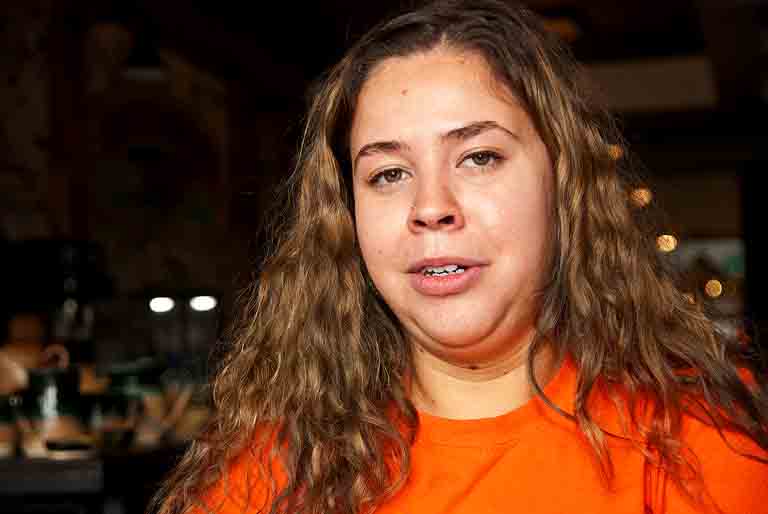
“Specifically I think of in my riding, we have people that are going to the hospital because you have no walk in clinic that’s open at a reasonable time out side of hours. What do you have happening there? There needs to be more accessibility to healthcare. In Midland we only have one walking clinic. Its open 9 to 5. Sometimes it s a crying baby at 2 a.m., they’ve got to go to the hospital. We really need to improve overall access to baseline primary healthcare providers so we don’t bog down,” she said.
Cuts to funding medical schools in the early 90s have been felt for the last ten years, with communities competing against each other to attract doctors from a smaller pool. While some of that funding has been restored, the result won’t be felt for some time.
“The federal government needs to be putting more money in education. Some of my best friends are doing amazing stem cell research. They’re working for Sick Kids Hospital in Toronto, they’re working for St. Michael’s, they’re doing amazing work in research fields that I could literally never conceptualize,” she said.
Of course in metropolitan areas the bigger is better mindset attracts the doctors. This does nothing for a Bracebridge resident who has to drive to Orillia to deliver a baby because their hospital is closed in the evening and service has been consolidate tens of miles from where they live. We see the same thing in education too, where students have to walk miles or ride a bus to a warehouse school which replaced three neighbourhood schools. It’s a business model borrowed, shifting costs, time and money, back onto the consumer for service when it is needed.
“At what point do we invest in big corporations to make money, or do we start investing in people so we don’t have to have those concerns. For me those are the two big options we have, save some money here, invest in a big corporation, or spend a little bit more with savings down the road,” Belcourt said.
Immigration
The platform does not have much about the issue of immigration and refugees in comparison to other parties, other than to oppose budget cutbacks to the Immigration and Refugee Board and a decision to remove its independence and make it a political function under a minister’s purview.
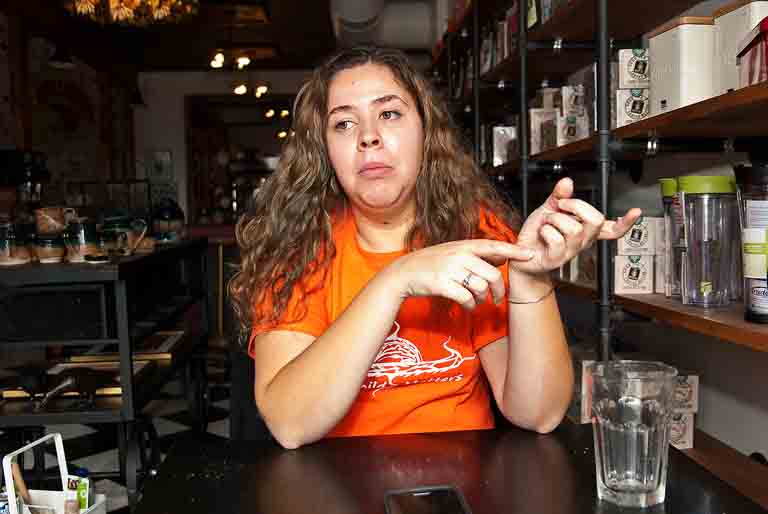
Yet, there will likely be debate in the next parliament about changing an immigration system many other countries in the world hold up as an example as a goal to achieve. To some, it’s broken and too many are getting in, others say the breakdown is because too many are left outside.
“Why aren’t people more sympathetic? Is it because its unfamiliar? Is it because people don’t want to understand that? Why not learn the story. People become resilient out of stressful situations. Grit is established in stressful situations. If you are put between a rock and a hard place you have to figure things out and anyone knows that. We need to have a greater understanding and sympathy and empathy even for people who have to overcome these things. Let’s just hear people’s stories, let’s find out how they got here and take care of them so they don’t have to worry.”
Belcourt speaks to the issue of refugees at our border at other than customs and immigration border crossings, mostly in Quebec. Never mind the actions of the southern government toward Central American refugees is propelling them to Canada and the fact The Safe Third Country Agreement between Canada and the U.S. allows them to present themselves at our border. Some seem to think people running for their lives are concerned about whether they make it to Prescott, Ontario, or the hunk of dirt right in front of themselves that is not south of the border.
“How many times are we offering aid to other countries because we have the resources to do so? Why is it so hard for our government to take a stand on these issues? Why aren’t we confronting the States and having those conversations around, “OK, something’s not working here.” We’re not honouring the people who are trying to get through their territory, said Belcourt.
“I get confused with treaties in the first place. When as any government honoured our treaties. Are you kidding me? Let’s come back to those treaties. Let’s talk about why they are not being honoured. Everyone’s treaties with all of the people here who are getting dispossessed, even in our own country. Conversations need to be had and those conversations can be transparent. They don’t need to happen in the back of things. We shouldn’t be intimidated by making our stance clear of how we want to support the people who are here and the people who are trying to get here. It’s not a hard conversation to have.”
The Last Word
Belcourt naturally agrees with the party platform on Indigenous issues – with a twist on one of the points.

“Where I live in Perkinsfield, there are people who don’t’ have water who have to walk to get water because the water that comes out of their taps isn’t good enough because the infrastructure just isn’t there. It’s not clean enough water. It’s not treated water. People say, “we want to end boil water advisories for Native people,” No. We want to end boil water advisories for everyone because there are literally people who live in Tiny Township who have to go get their water. That’s something that should not be happening in 2020.”
Having said that, the first thing that came to mind was making connections. If elected she wants to sponsor a private member’s bill to do that.
“Internet as a utility because we’re in 2019 and people in my riding still don’t have access to internet, which stops them from being able to be in business, to connect with family members, to have access to television, to keep connected on media. I don’t understand how in 2019 a riding doesn’t have internet and people in Canada don’t have internet.”
Part and parcel with having the internet are other topical issues about who owns it, who controls the content, using it for evil purposes like interfering in elections, data collection and protection. On all those Belcourt thinks we could follow Europe’s lead and government should enlist unfettered experts to put in place regulations about accountability for content, specifically the lying that goes on in social media.
“We need to get people in these industries that are skilled in data management, encryption, data IT people, I don’t know if algorithms solve everything, but there needs to legislation there that’s saying, Ok, we understand we’re in a changing time in our world and we need to make sure the information people are getting is accurate,” Belcourt said.
“I think the difference is the intention behind it. Is it someone genuinely voicing their opinion, or is it propaganda? That’s the line for me. It’s a difficult one because I do think you have to listen to people. I don’t know how we distinguish it, but that line needs to be drawn.”
(Photos by Swartz – SUNonline/Orillia)
Other Candidates:

